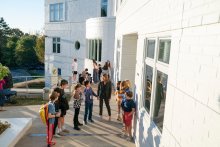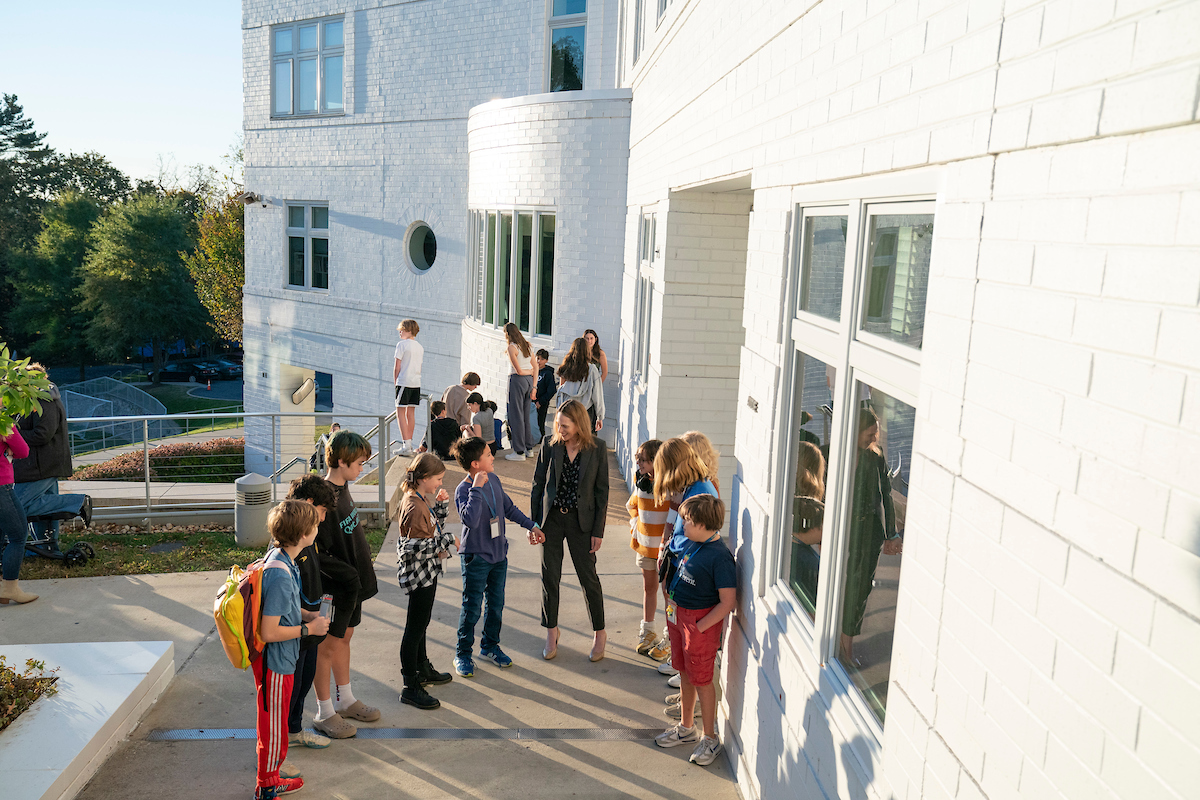
Is Exciting.
Returning students move quickly through the halls flagging down friends they haven’t seen in a few months, catching up on summer adventures, books, movies, and new hobbies. New students are invited into class time conversations and we hear “hey, do you want to sit with us at lunch?” Teachers remark at how much students grew in both physical height and maturity. Smiles abound and there is a sense of possibility in the air.
Is Nerve-Wracking.
“That teacher has high expectations” and “This year’s History course has a lengthy research paper” echo on the athletic field as fall sports practices get underway. It is normal to worry about increased rigor in academic classes while also being excited by challenging work. Sometimes, friendships change over the summer months, adding anxiety to the early days of the school year. We all experience shifts in friendships, and it’s important to take this opportunity to deepen relationships with classmates you might not know as well.
Is the Beginning.
Beginnings offer something we each desire—the opportunity to start new and fresh. We can choose how to define our experience, what we show up to, and who we spend time with. We can commit to new habits that strengthen our social-emotional well-being and our academic skills.
A hallmark of a Field education is the strong relationships students share with faculty. Our faculty (everyone who works here at Field) return to school each year with a renewed commitment to ensuring our students are challenged, that there are ample opportunities to grow, and that joy is infused into learning. Your faculty takes school seriously and believes that by the end of the year, students will have mastered both critical skills and relevant content in various disciplines.
One of those skills we are all growing is our ability to engage in good faith dialogue in our classrooms and community spaces. Good faith dialogue exists when you enter into a conversation with genuine interest in another person’s point of view, perspective, and ideas. When your approach to listening is honest and generous. When your engagement is respectful of the dignity of all human beings, especially those you disagree with. It is about being curious.
This summer our 9th and 10th graders read, I Never Thought of It That Way by Monica Guzman and our 11th and 12th graders read, Try to Love the Questions by Lara Hope Schwartz. Both books will be integrated into our advisory and core curriculum courses. Developmentally appropriate lessons have also been infused into our middle school. Students should expect to feel challenged to stretch and strengthen their skills around careful reading, deep thinking, generous listening and moving from debate to dialogue. There will be discomfort as we encourage curiosity above certainty.
We talked about beginnings, what about the end?
When I think about beginnings, I am hyper aware that an “end” is inevitable. I try to visualize my hopes for that end and encourage you to do the same. When the school year comes to a close, my greatest hope for each of us is that we will both look back and move forward with a deeper understanding of the people we have met, an appreciation for the ideas we have explored, and feeling greater connection—that we will all have built new knowledge, some of which will require the courage to change our minds and even unlearn some of the things we think we know today. I hope you will join me on this journey as we learn together. I am looking forward to a wonderful year ahead.
Warmly,
Lori Strauss
Head of School
